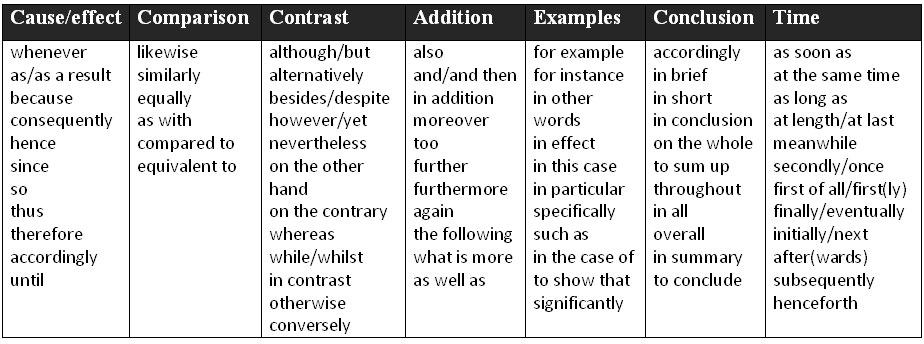Discourse markers are words and expressions used to show how discourse is constructed.
We use different discourse markers in speaking and writing. In speaking, the following discourse markers are very common:
- anyway, like, right, you know, fine, now, so, I mean, good, oh, well, as I say, great, okay, mind you, for a start.
Discourse markers to order or sequence what we say:
- and, in general, second, to sum up, and then, in the end, secondly, what’s more, first (of all), last of all, so, well, firstly, next, lastly, for a start, on top of that, third(ly).
Discourse markers as responses:
- absolutely, fine, okay, wow, (all) right, good, quite (more formal), yeah, certainly, great, really, yes, definitely, I see, sure, exactly, no, wonderful.
Discourse markers showing attitude:
- actually, frankly, I think, (I’m) sorry, admittedly, hopefully, literally, surprisingly, amazingly, honestly, naturally, thankfully, basically, ideally, no doubt, to be honest, certainly, if you ask me, obviously, to tell you the truth, clearly, I’m afraid, of course, understandably, confidentially, I must admit, predictably, undoubtedly, definitely, I must say, really, unfortunately, essentially, in fact, sadly, fortunately,indeed, seriously.
Discourse markers: sounding less direct:
- apparently, kind of, perhaps, roughly, arguably, like, presumably, sort of/ kind of, I think, maybe, probably, surely, just.

Comments
Post a Comment